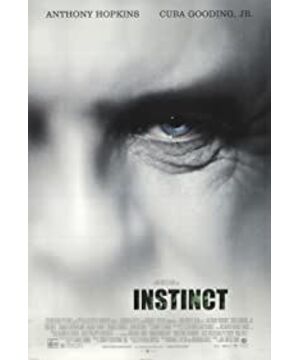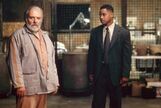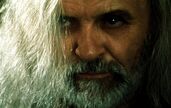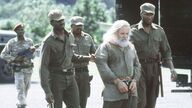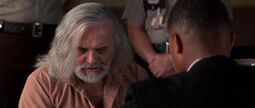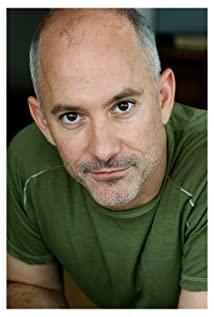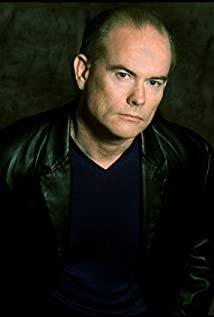"Instinct": Reflections on the "Archimedes Pivot" of
a civilized society [1] A
long time ago, I bought "Instinct" by Anthony Hopkins and Cuba Gooding Jr. Just for the two leading acting stars, this film is worth watching.
The film tells the story between an anthropologist and a psychologist. But for me, this is a spiritual journey about human "civilization". Hopkins plays a very dedicated anthropologist. In order to investigate the gorilla's primitive social life, he went into the African forest alone and lived with a group of wild gorillas for two years, and he was miraculously big. The orangutans accepted and were regarded as a member of the group. The mother orangutan is willing to let him hold the baby, and the gorilla leader regards him as one of the objects of protection. However, one day, harmony was broken by the sound of hunting guns. Hopkins furiously smashed the guns aimed at the gorillas, and was eventually beaten by the opponent. The gorilla leader, who had long regarded Hopkins as a member of the group, did not run away, and roared towards the hunter who had stepped Hopkins' head under his feet. After the random shot, the orangutan leader fell dead in front of Hopkins. Looking at the bleeding eyes of the orangutan leader's death, Hopkins clearly heard the silent scream from his heart...
Hopkins was sent back to the United States and imprisoned in a psychiatric hospital for wounding and killing people in that defensive battle. , The psychologist played by Gooding is assigned to study the silent anthropologist and try to obtain his disappearance and murder experience in Africa. At first, Gooding went well. He used his family power to make Hopkins speak again and gained some trust from Hopkins, but as the conversation unfolded, Gooding became more and more difficult to understand Hopkins. One is a psychologist with a successful career living at the top of a civilized society, and the other is an anthropologist who is willing to abandon civilized life and live with gorillas. What unfolded between them is an extremely difficult spiritual dialogue.
[two]
Foucault told us that the mental hospital is a microcosm of civilized society. Here, the jailers who have the power to control plan everything for the patients. They artificially create scarce resources and set the rules of the game. In this mental hospital in the movie, all patients receive a playing card every day, and whoever gets the square ACE in it can enjoy the privilege of being outside for half an hour. The result is always strong patients grabbing the square ACE, and the jailers make management easier and even full of "entertainment" by creating this kind of internal scarcity and competitive game.
Faced with all this, Gooding became confused. He realized at Hopkins's prompt: everyone has the right to go outside to let the wind out. These patients only need to tear off the cards in their hands, and that set of game rules no longer applies. The most important thing that these patients are taken away by the "takers" (Hopkins' core term) is not "control" or "freedom" but "imagination". In the same way, human civilization and society have taken control of other inhabitants of the earth (countless species, creatures, and tribal "primitives"). They invented a set of game rules and indulged in this game. They are in various so-called They competed with each other in the "scarcity" (more human beings promoted or created). They forget that thousands of years ago the ancestors used to live together in harmony and tranquility, protecting and caring for each other instead of fighting each other. envy.
Gooding from Hopkins, like Hopkins from the gorilla group, obtained an "Archimedes fulcrum" that exists outside the entire set of games in civilized society, and then turned to reflect and censor humans. Civilized society itself, and the forms of life in it. Such introspection does not necessarily lead to the conclusion of "noble barbarians" or "evil capitalist society". All answers are left to the introspector himself and his personal practice.
[three]
Hopkins chose to return to a harmonious and peaceful natural life, which, in his view, is safer than human civilization. "So what should human society do? Abolish urbanization or restore the natural appearance?" In the face of Guding's confusion, Hopkins was silent for a long time and replied: "This is a question you need to think about. Think about it slowly." After a while, he added: "Maybe we only need to give up one thing-our dominance. The world does not belong to mankind only, we are not the ruler here, or God. The question is, can we really give it up? Power is so fascinating. Human beings want to be gods all in one mind..."
Hopkins left the problem to Gooding, and at the same time, it left it to us outside the movie.
View more about Instinct reviews


